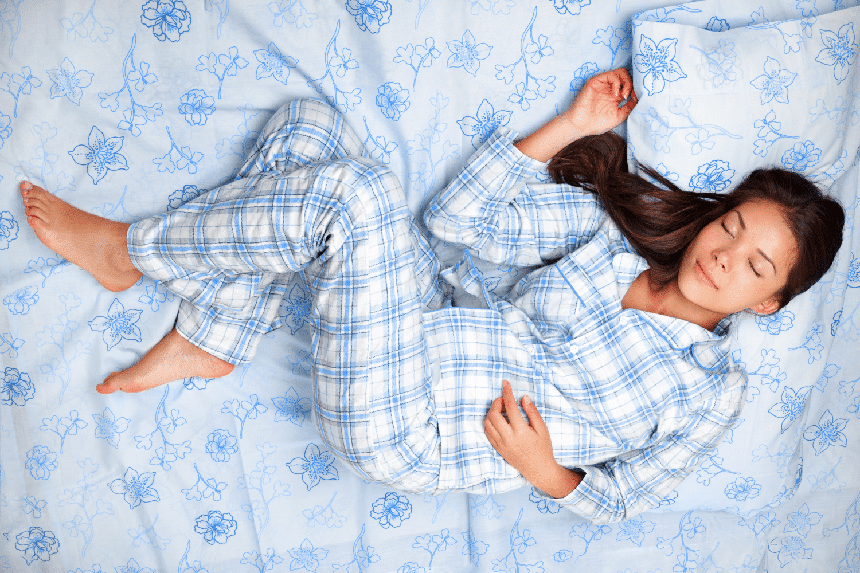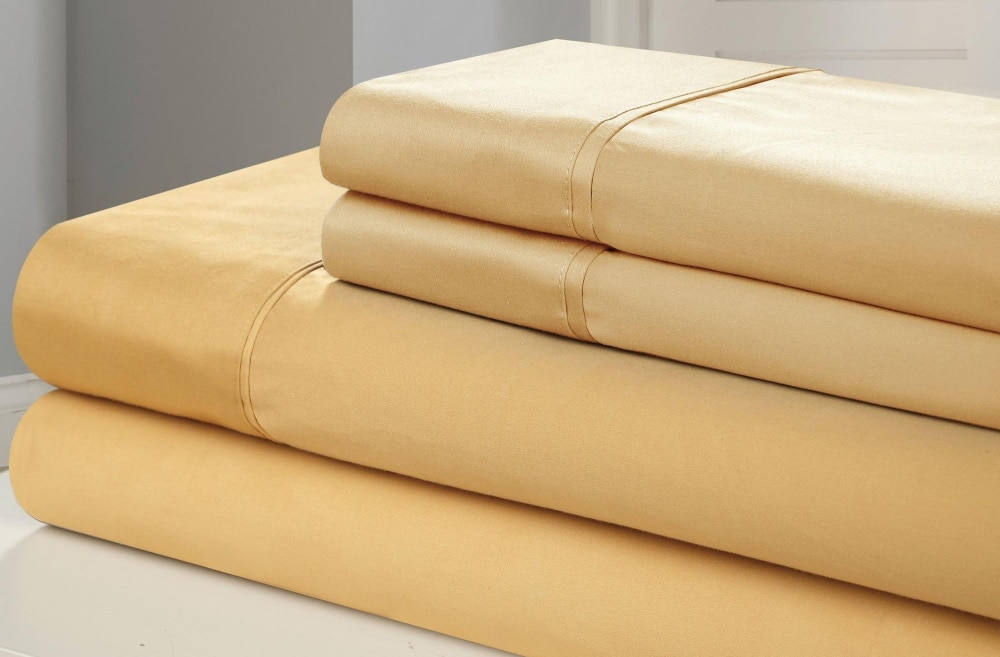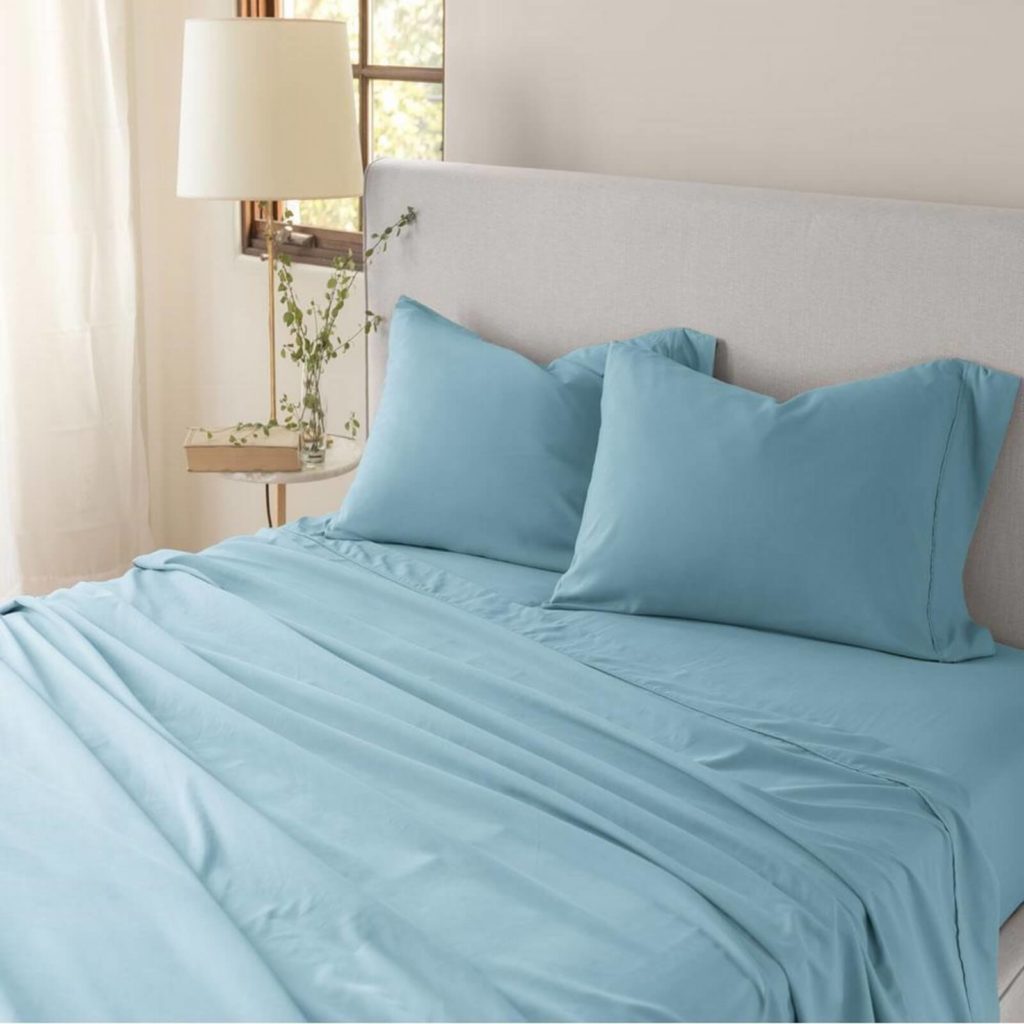

One of the unpleasant realities of becoming an adult is that suddenly, we are responsible for all of our own chores. Dishes need to be washed and laundry needs to be done. For the most part, it is obvious when clothes need to be cleaned. But how often should you wash your sheets? Bed sheets seem clean enough. Covered by blankets, we rarely think about them getting dirty. And really, there’s a certain frustration in having to take your whole bed apart, wash your sheets, and then wrestle with that unruly bottom fitted sheet. However, your bed sheets should be cleaned, and at frequent intervals. We’ll walk you through the best schedule so your bed sheets stay cleaned.
Please take a look at this chart that breaks down the different bedding components and how often they should be washed.
| Sheets | Once a week |
| Pillowcases | Once a week |
| Duvet covers | Once every 2-4 weeks |
| Weighted blankets/comforters | Once every 2-3 months |
| Pillows | Once every 4-6 months |
Having to wash your sheets once a week can seem quite overwhelming. And there’s no shame in acknowledging that sometimes you just feel too busy to take on this task. Well, if you really can’t commit to this schedule, there are a few habits you can change to stretch out these time guidelines.

If you do wear pajamas to bed, this can actually trap the dead skin cells that your body naturally sheds. Throughout the day, our skin sheds its top layer and these dead cells have to end up somewhere. By providing a buffer between your skin and your bedsheets, you can minimize how soiled your sheets become.
Throughout the day, your body naturally sweats, removes dead skin cells, and comes into contact with various substances. Most people like to take a shower in the morning to wake up but you might want to rethink this habit and switch to evening showers.
Even if you don’t feel particularly dirty, your body is naturally covered in dirt and oil by the end of the day. An evening shower before bed can cleanse your body which means less dirt is transferred to your bed sheets.
In particular, hair can become quite greasy by the end of the day, which is then naturally transferred onto your pillowcase. Clean hair keeps your pillowcase clean.

Pets naturally shed their fur and this is especially true when they start shedding their winter coat. Even if you don’t pet them during the night, this fur will be transferred to your bedsheets.
Then there is the issue of dirt. Dogs are outside throughout the day and they naturally track that dirt inside, with some of it bound to stick to its fur. Cats that are let outside will also bring in dirt and even if they are inside cats, they can still pick up dirt and dust from around the house.
While pets try to keep themselves clean, they are bound to miss a bit and as they move around your bed to find a truly comfortable spot, this dirt and grime transfers to your sheets.
One other element to consider with pets is the issue of fleas and other pests. Too often we don’t notice that your pets have fleas until they have already spread them throughout the house. If your dog or cat has fleas, be sure to wash your sheets right away as you don’t want these tiny critters feasting on you at night.
Drooling is not your fault and if you’re sound asleep, you can’t really control it. However, drooling can really increase the need to clean your pillowcase. Human saliva contains a lot of bacteria and this can quickly end up on your pillowcases. Moreover, drool can penetrate into your pillow and if your pillowcase it too damp, bacteria and mold can set in.
There’s no need to panic if you drool in your sleep as it is quite common. However, just be aware of this action and toss your pillowcase in the wash more often.

Whenever moisture and warmth come together, bacteria thrive. Sweat can definitely lead to more bacteria appearing in your sheets, especially if you dutifully make your bed every morning, thus trapping that moisture.
If you can’t wash your sheets after a particularly sweaty night, leave them on but don’t cover them with your duvet. Instead, air dry your sheets so that the moisture can evaporate.
We’ve mentioned the natural shedding of skin cells that happens, and this action is amplified if you move around a lot. Those that are light sleepers or who wake up multiple times a night will move around, causing more dead skin cells to be transferred to your bed sheets.
If you’ve had a few restless nights in a row, it’s best to give those sheets a good wash.
Some fabrics are naturally hypoallergenic, meaning they resist allergens and moisture. These include cotton, silk, and microfiber sheets. Bamboo sheets are also a good option. If your bedsheets are made from these materials, they have a better chance of repelling dust mites than heavily treated sheets.
Your body does its best to keep clean but throughout the day, sweat and grime can accumulate. Furthermore, your body sheds 40,000 skin cells every hour Trusted Source How Much Skin, Blood, and Saliva the Human Body Can Make in a Lifetime The human body achieves some pretty remarkable feats in a lifetime. But just how much skin is replaced? How much salvia is swallowed? www.businessinsider.com . This is a necessary process but when there are dead skin cells in your bed sheets, tiny, microscopic dust mites have a feast.
While dust mites are harmless to you, like any animal that eats, it has to poop. That poop then can cause irritation and allergies. If you constantly wake up affected by allergies and you haven’t washed your sheets in a while, then there’s a good chance the two are linked.
When it comes time to washing your bedding, pick a cycle that has hot water. This hot water is needed to kill dust mites and other bacteria. Your bedsheets might, however, say that they should only be washed in cold water. This may be a preventative warning so use your best judgement.
As for detergent, choose one that isn’t full of harsh chemicals, and won’t damage delicate fabrics, such as the Glamorous Diva laundry detergent. Laundry detergent that is full of chemicals will actually stick to your bedding, making your sheets feel less soft. Also, the scent of your detergent is crucial, especially if you have any allergies. Try some neutral, fresh scents, such as the Breezeo laundry detergent strips which buyers rave about in this regard.
Once clean, your sheets should be dried on a hot setting. However, if the care label says not to dry, you can actually put your sheets outside. The sun will naturally kill tiny bugs, sanitizing your sheets. As an added bonus, the sun will bleach your white sheets, making them look bright again.
There aren’t many people that enjoy doing laundry and sometimes you’re just too busy for it. If this is the case, there are a few actions you can take instead.
Start by washing your face before bed. This gently removes dead skin cells as well as removes oil, grime, and makeup. Your pillowcase won’t become as dirty, allowing you a bit more time between washes.
A shower before bed is also recommended. This is an especially good idea during summer months as you will sweat more and be exposed to more dirt from outside.
Finally, if you don’t have time for laundry and can’t change your bedtime routine, think about purchasing extra sets of bedsheets. This way you can simply change the bedsheets a few times before having to worry about actually cleaning them later on.
Yes, you do indeed have to wash your bedsheets, and probably more than you already have. While you’ll most likely be fine with dirty sheets, just remember that the dirtier your sheets are, the more food there is for dust mites to eat. If you are worried about spending extra time washing your sheets, you can have a shower or wash your face before bed, to keep your sheets cleaner. How often should you wash your sheets does come with the answer of once a week, but that feeling of slipping into freshly laundered sheets should make the effort worth it.





